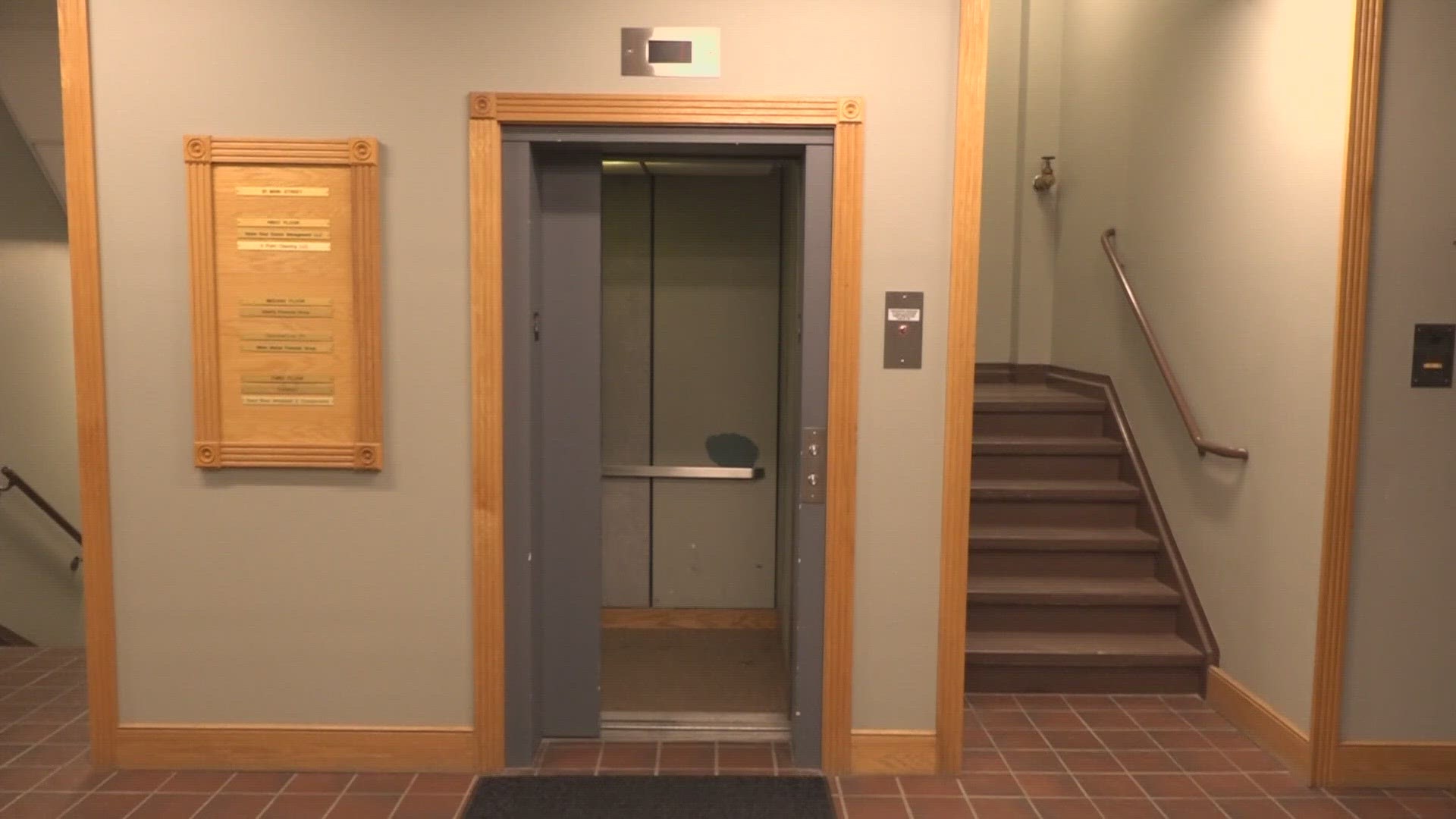BANGOR, Maine — Maine State Senator Teresa Pierce said the state's joint select housing committee learned that the lack of available elevator inspectors is hindering the finalization of some multi-story affordable housing projects.
Pierce, who represents senate district 25 and who serves as the chair for the joint committee on housing, said the Legislature held a meeting with representatives from Maine's Elevator and Tramway Safety Program, housing developers and others on Tuesday.
Creating more affordable housing continues to be a top priority for the Maine State Legislature after Maine Housing, the Governor's Office of Policy Innovation and the Future, and the Maine Department of Economic and Community Development released a study informing that the state needs to build more than 84,000 new homes by 2030.
According to the Deputy Commissioner for Maine’s Elevator and Tramway Safety Program Joan Cohen, there are only three licensed elevator inspectors in the whole state who can perform elevator acceptance inspections that are needed before an any elevator statewide can be cleared for use in a commercial or residential building.
Cohen said the senior inspector, John Burpee, manages other responsibilities, and he does not regularly complete elevator acceptance inspections. There is only one inspector who is "fully dedicated" to completing elevator acceptance inspections, with the third licensed inspector managing other job functions and filling in, completing acceptance inspections about 80 percent of the time, Cohen said.
"A licensed elevator inspector is a uniquely skilled and trained person, and there are likely not many in Maine willing to work as state employees at current state compensation rates," Cohen said in response to why there are so few elevator inspectors. "We heard that the industry would be willing to pay higher inspection fees. Any fee increase would need to go through the Administrative Rulemaking Procedure Act. We will be discussing the elevator inspection process including fee increases, staffing needs and other budgetary issues over the next few weeks."
Pierce said at the meeting, the Elevator and Tramway Safety Program representatives informed the housing committee learned that there is no real or set plan at this time for bringing new licensed inspectors in.
Pierce said because creating new housing in Bangor, Portland, Scarborough, and other areas tends to be multi-story buildings, the shortage of available elevator inspections is a growing concern.
Cohen said it usually takes a full day to complete one inspection. There are currently 12 building units that are scheduled to receive an elevator acceptance inspection within the next three weeks, Cohen said.
She said there are 90 other buildings that are in a "pending status," and those projects will soon need elevator acceptance inspections as well.
"Pending status means the elevator contractor has filed plans with the Elevator and Tramway Safety Program, the program has reviewed the plans and issued a permit to install the elevator," Cohen said. "It is important to note that these 90 units are all at different stages of construction and have not yet requested an acceptance inspection."
Cohen said although the staff is slim, inspectors try to fulfil request within two to three weeks, but Pierce said developers complained that getting an approval inspection takes longer.
Cohen said inspectors struggle to coordinate schedules with all the personnel who has to be present at the acceptance inspection including the elevator company personnel, building owner and/or construction contractor representative, electrician, and building alarm company representative.
"If an inspection is cancelled or must be rescheduled by the contractor for any reason, including aligning everyone’s schedule, it may take a few weeks to get them back into the queue," Cohen said. "That said, there have been circumstances where delays were longer."
Pierce said the joint select housing committee is working to remove obstacles that are holding up housing development projects.
Pierce said although not all housing projects will need elevators, it's important to build smart and meet the extreme housing needs. She said building multi-story apartments may give housing developers room to build more functional living spaces.
"We have, you know, small downtowns and large downtowns that have availability for infill where we can put maybe small apartment buildings," Pierce said. "These all don't have to be things like in big cities—but four story, you know, complexes across the state can be very appropriate and if we build in places that have water, have sewer, have maybe some transportations, have people close to walking distance to a grocery store. It just creates a community and ability for people to live anywhere in the state."
Cohen said individuals who wish to become elevator inspectors need to get their QEI certification. Click here for more information about how to become a licensed elevator acceptance inspector.

